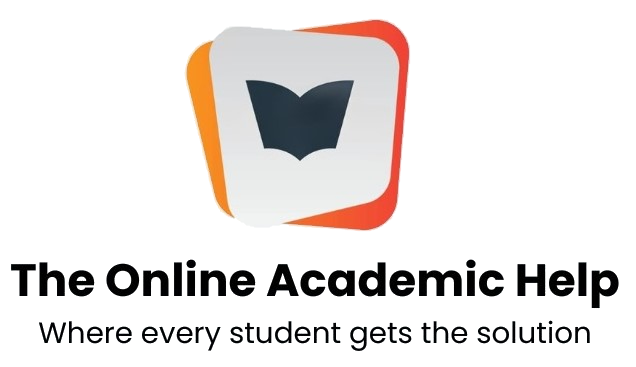Title: Design a Presentation
Due Mar 21
For the assessment, you will need to:
Design a presentation session for your peers to develop their knowledge and skill base regarding one of the following topics:
See:
Australian Institute of Family Studies. (2018). Family Matters, (100). https://aifs.gov.au/publications/family-matters/issue-100
Australia’s children, Families – Australian Institute of Health and Welfare (aihw.gov.au)
• The costs of having children (I choose this topic as it is true to my situation, I have no support from the government, especially the childcare subsidy so it is really struggling)
• Do all families have equal rights?
• Improving the mental health of infants, children and families
• Preventing infant and child mistreatment
Your presentation must:
• Reflect the current situation within the Australian context.
• Include current research on the issue
• Practical skills that can be used when working with children and families
Your assessment should show evidence that you have read widely on the topic beyond the supplied readings and texts. Your assessment must use correct referencing, in APA style


Prescribed text:
Angel, M. (2019). Supporting the wellbeing of parents and careers. Early Childhood Australia
Cashmore, J. (2017). Child protection and out-of-home care. In R. Grace, K. Hodge, & C. McMahon (Eds.), Children, families and communities (5th ed.) (pp. 269- 284). Oxford University Press
Readings:
Cohrssen, C., Church, A., & Tayler, C. (2010). Victorian Early Years Learning and Development Framework: Practice principle 1: Family-centred practice. https://www.education.vic.gov.au/Documents/childhood/providers/edcare/ evifamilyc.pdf
Practice paper: Engaging with families (dsdsatsip.qld.gov.au)
Department of Education and Early Childhood Development. (2012, February).
Strength-based approach: A guide to writing transition learning and development statements. Victorian Government.
https://www.education.vic.gov.au/documents/childhood/professionals/learn ing/strengthbappr.pdf
Hunter, C., & Price-Robertson, R. (2014, May). The good practice guide to child aware approaches: Keeping children safe and well (CFCA No. 21). Australian Institute of Family Studies.
Rouse, L. (2012). Family-centred practice: Empowerment, self-efficacy, and challenges for practitioners in early childhood education and care. Contemporary Issues in Early Childhood, 13(1), 17-26. https://journals.sagepub.com/doi/10.2304/ciec.2012.13.1.17
Australian Institute of Health and Welfare. (2019, February 2). Child protection.
Child protection Overview – Australian Institute of Health and Welfare (aihw.gov.au)
Australia’s children: Child abuse and neglect.
Commonwealth of Australia. (2009). Protecting children is everyone’s business: National framework for protecting Australia’s children 2009–2020. child_protection_framework.pdf (dss.gov.au) Commonwealth of Australia. (2010). Protecting children is everybody’s business:
National framework for protecting Australia’s children 2009-2020: Annual report to the Council of Australian Governments 2009-10.
pac_annual_rpt_0.pdf (dss.gov.au)
Higgins, D. J., (2015). A public health approach to enhancing safe and supportive family environments for children. Family Matters, (96), 39-52.
Kaur, J. (2012, July). Cultural diversity and child protection: A review of the Australian research on the needs of culturally and linguistically diverse (CALD) and refugee children and families. JK Diversity Consultants.
cultural_diversity_child_protection_kaur2012_a4.pdf (unisa.edu.au)
Moloney, L., Weston. R., & Qu. L. (2015). Attitudes to post-separation care arrangement in the face of current parental violence. Family Matters, (96), 65-71.
Scott, D. (2015). Children in Australia: Harms and hopes. Family Matters, (96), 14-22. https://aifs.gov.au/publications/family-matters/issue-96/children-australia
Spencer, N. (2014). Impacts of caring for a child with chronic health problems on parental work status and security. Family Matters, (95), 24-29.
Tilbury, C. (2014). Working with children checks: Time to step back? Australian Journal of Social Issues, 49(1), 87-100. https://doi.org/10.1002/j.1839- 4655.2014.tb00301.x
Beyond Blue. (n.d.). What is mental health?
Children of Parents with a Mental Illness (n.d.). My child’s support network. http://www.copmi.net.au/images/pdf/resources/child-support-network.pdf
Everymind. (2014). Connections: A resource for early childhood educators about children’s wellbeing. Australian Government Department of Education. https://everymind.imgix.net/assets/Uploads/connections-resource-book.pdf
Incerti, L., Henderson-Wilson, C., & Dunn, M. (2015). Challenges in the family: Problematic substance use and sibling relationships. Family Matters, (96), 29- 38.
Lives Lived Well. (n.d.). Lives Lived Well – Support for Drug, Alcohol and Mental Health problems Tsantefski, M., Parkes, A., Tidyman, A., & Campion, M. (2013).
An extended family for life for children affected by parental substance dependence. Family Matters, (93), 74-83. Family Matters – Issue 93 – An extended family for life for children affected by parental substance dependence | Australian Institute of Family Studies (aifs.gov.au)
